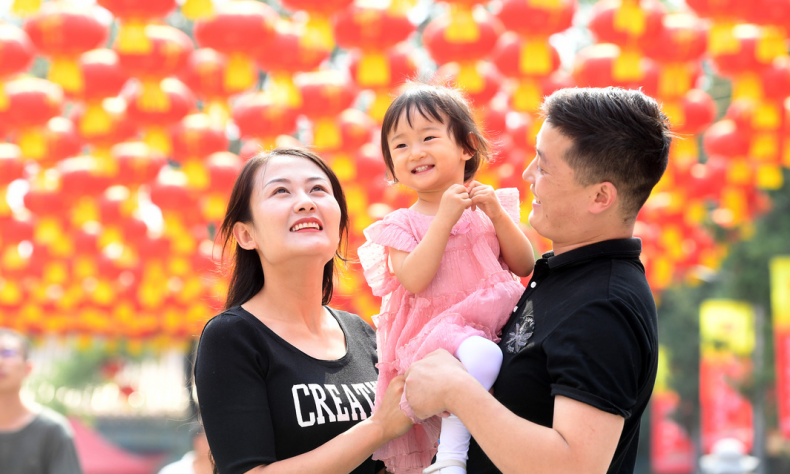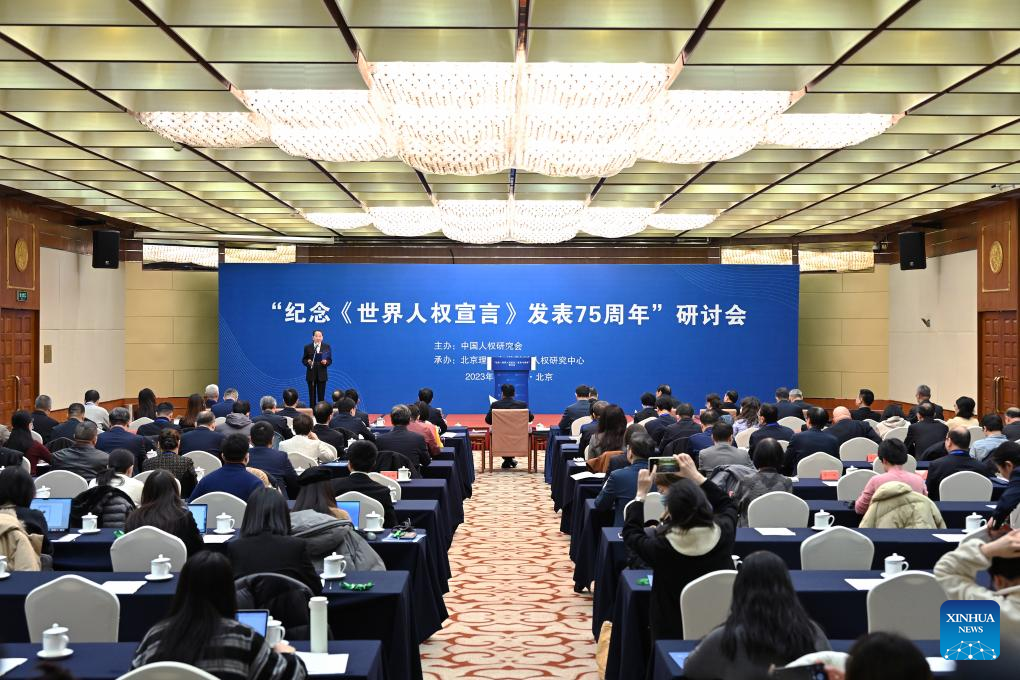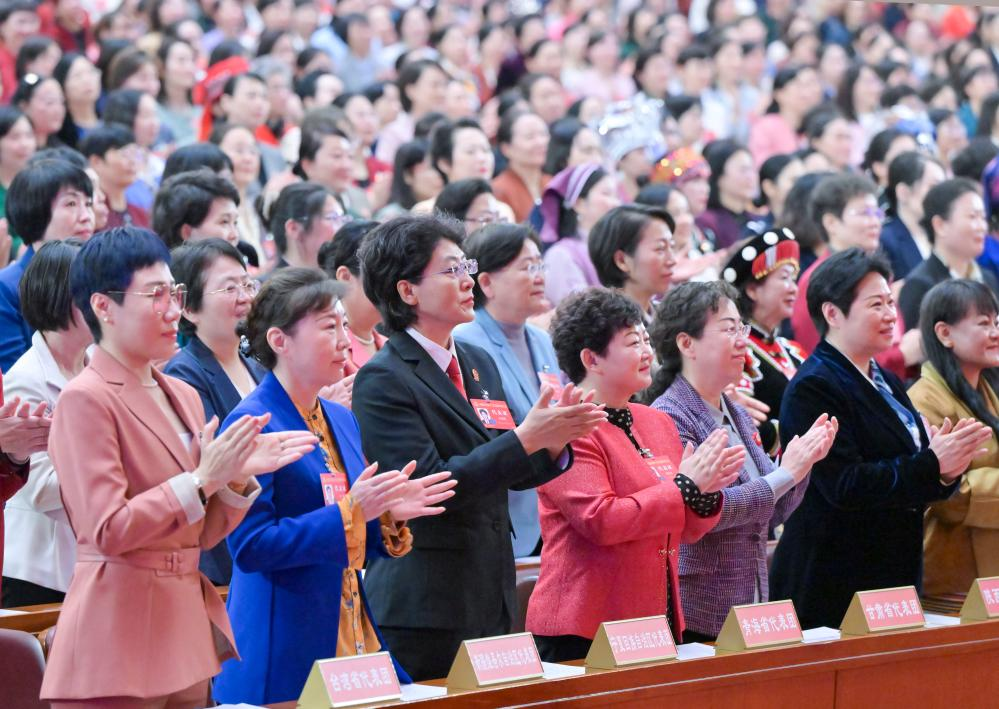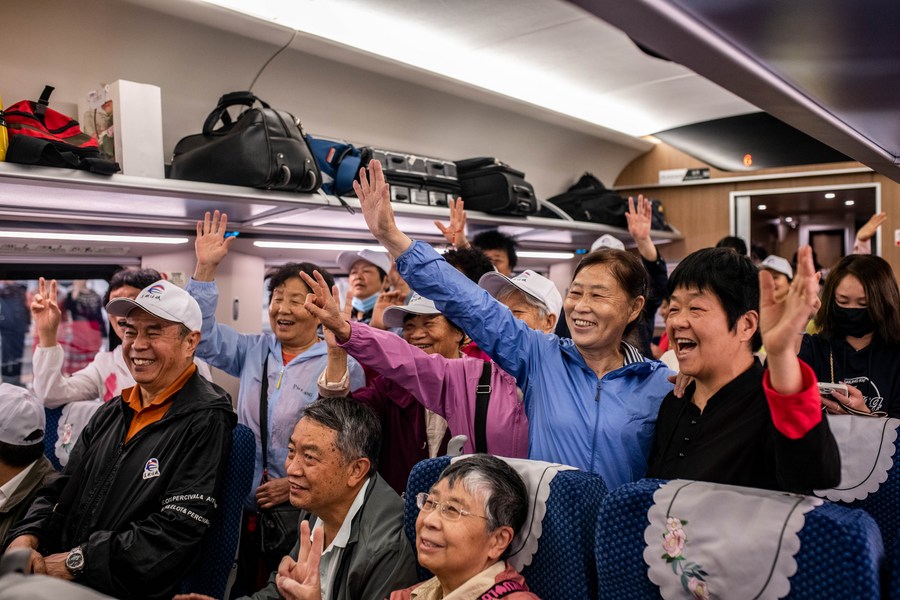China Contributes to Promoting Global Human Rights in Both Theory and Practice

China has remained steadfast in contributing wisdom to the Universal Declaration of Human Rights, alongside actively advocating and practicing it.
The Universal Declaration of Human Rights (UDHR) established the basic consensus on respecting and protecting human rights. China has always been a contributor, advocator and practitioner of the spirit of the declaration. Padma Choling, president of the China Society for Human Rights Studies, spoke highly of the declaration and China’s efforts to human rights in his speech at a seminar to commemorate the 75th anniversary of UDHR.
UDHR, a milestone document in the history of human rights, was adopted by General Assembly of the United Nations on December 10, 1948. The recent seminar hosted by the China Society for Human Rights Studies in Beijing, was attended by more than 70 government officials, scholars, lawyers and representatives of social organizations. The seminar had an insightful discussion about the significance of UDHR, the development of human rights in China and the challenges ahead.
Human rights progress in China
China has remained steadfast in contributing wisdom to the declaration, alongside actively advocating and practicing it, said Padma Choling.
President Xi Jinping attaches great importance to the work of human rights. Xi has stressed the significance of human rights many times in his speeches. These speeches and articles by President Xi are the new development of human rights theories in China, giving answers to a number of human rights questions and offering the Chinese approach to the development of human rights in the future, said Padma Choling.
China adheres to the inclusive development and makes efforts to constantly improve human rights for its people, achieving a remarkable progress in human rights over the past decades, he said.
He added that China’s historical achievements in advancing the human rights cause have provided new outlook for carrying forward the spirit of UDHR.

Li Lin, a scholar of law and member of the Chinese Academy of Social Sciences, said at the seminar that China always adheres to the people-based and people-centered approach to human rights and reaches remarkable progress in human rights.
“As the core concepts of contemporary Chinese outlook on human rights, the people have the dominant position in the human rights system; and the cause of human rights is for the people, in the people, and with the people,” he said.
“Living a happy life is the primary human right.” That is what China insists in practice and the living standards of Chinese people have been improved continuously over the past decades, Li added.
Qian Xiaoyan, deputy director-general, Department of International Cooperation, Ministry of Human Resources and Social Security of China, mentioned the importance of employment and social security to human rights.
According to Qian, the relatively full employment has been achieved in China, such a large developing country with a population of more than 1.4 billion over the past decade. Since 2012, new urban employment nationwide has remained continuously above 11 million per year, and has increased to over 13 million. From January to October this year, 11.09 million people were newly employed in urban area nationwide.
The governments at all levels also have taken measures to eliminate job discriminations and offer more helps to disadvantaged groups, she said.
“We have also promoted equal employment services for migrant workers. The total number of migrant workers in China has increased from 263 million in 2012 to 296 million by the end of 2022.”
Today, the protection of women’s rights and interests has been further improved in China, said He Shuwen, deputy director-general of the Liaison Department of the All-China Women’s Federation.
According to He, about 44.16 million rural women in China have shaken off absolute poverty. Women have significantly improved their health, with the average life expectancy exceeding 80 years and the maternal mortality rate falling to 15.7/100,000. The gender gap in compulsory education has been basically eliminated, and it has been a continuous trend that more than half of higher education students are girls.
Chinese women can be seen in every position of the society. Women have accounted for more than 40 percent of the total employment in China, she said.
Besides, women have participated in decision-making and management in a more extensive way. She mentioned that the proportion of women in delegates to the 20th CPC National Congress, deputies to the 14th National People’s Congress and members of the 14th National Committee of the Chinese People’s Political Consultative Conference was 27 percent, 26.54 percent, and 22.4 percent, respectively.

China’s efforts to advance global human rights
Apart from domestic human rights progress, China is also a contributor to the global human rights cause. China not only focuses on the happy life of the Chinese people but also devotes itself to the common well-being of humanity, providing important practical experience and ideas for promoting global human rights governance and building a community with a shared future for mankind through positive actions.
Li Lin stressed that China has a global vision of human rights. He said, President Xi Jinping proposes to build a community with a shared future for mankind, which will help promote the development of the global human rights cause and jointly create a new form of human rights civilization.
He added that it carries forward the common values of all humanity and advocates mutual respect, mutual tolerance, mutual exchanges, and mutual learning among different civilizations and countries. It adheres to the principles of safeguarding human rights with security, promoting human rights with development, developing human rights with cooperation, and enhancing human rights with civilization.
Global human rights governance is inherent in global governance, said Fu Zitang, vice president of the China Society for Human Rights Studies, president of the Human Rights Research Institute, Southwest University of Political Science and Law.
As early as December 10, 2018, in a letter to the seminar commemorating the 70th anniversary of the Universal Declaration of Human Rights, President Xi Jinping proposed to “promote the formation of a more just, reasonable and inclusive global human rights governance, jointly build a community with a shared future for mankind, and create a better future for the world.” This is the first time that President Xi has proposed the concept of “global human rights governance”, Fu said.

This year marks the 75th anniversary of the adoption of the Universal Declaration of Human Rights, the 30th anniversary of the adoption of the Vienna Declaration and Programme of Action, and the 10th anniversary of the Belt and Road Initiative and the concept of building a community with a shared future for mankind. China was recently re-elected to the UN Human Rights Council. This is the sixth time that China has been elected to the Council, making it one of the countries with the highest number of Council memberships, Fu mentioned.
President Xi has put forward three global initiatives: the Global Development Initiative (GDI), the Global Security Initiative (GSI), and the Global Civilization Initiative (GCI). From the perspective of human rights protection, the three global initiatives are an effective solution to the problem of human rights deficit and the improvement of global human rights governance, Fu said.
On the whole, the three global initiatives are integrated and any one is indispensable. They together constitute a driving force for improving global human rights governance and promoting the development of the global human rights cause, Fu said.
It can be seen that security is the prerequisite for development and prosperity of civilization, as without a peaceful and stable environment, development would be impossible. Development is the foundation to consolidate security and civilization, as only through prosperity and development can peace be sustainable and civilization make progress. Civilization is the result of security and development, and in turn, it can lead security and development to a higher level.
For the better global human rights, Fu suggested that the international community should adhere to common development, shared security and collaboration. First, common development is the “master key” to promoting the protection of human rights. Second, shared security is the “stabilizer” for the consolidation of human rights. Third, collaboration is the “lubricant” for eliminating friction over human rights, he said.
 Facebook
Facebook
 Twitter
Twitter
 Linkedin
Linkedin
 Google +
Google +










